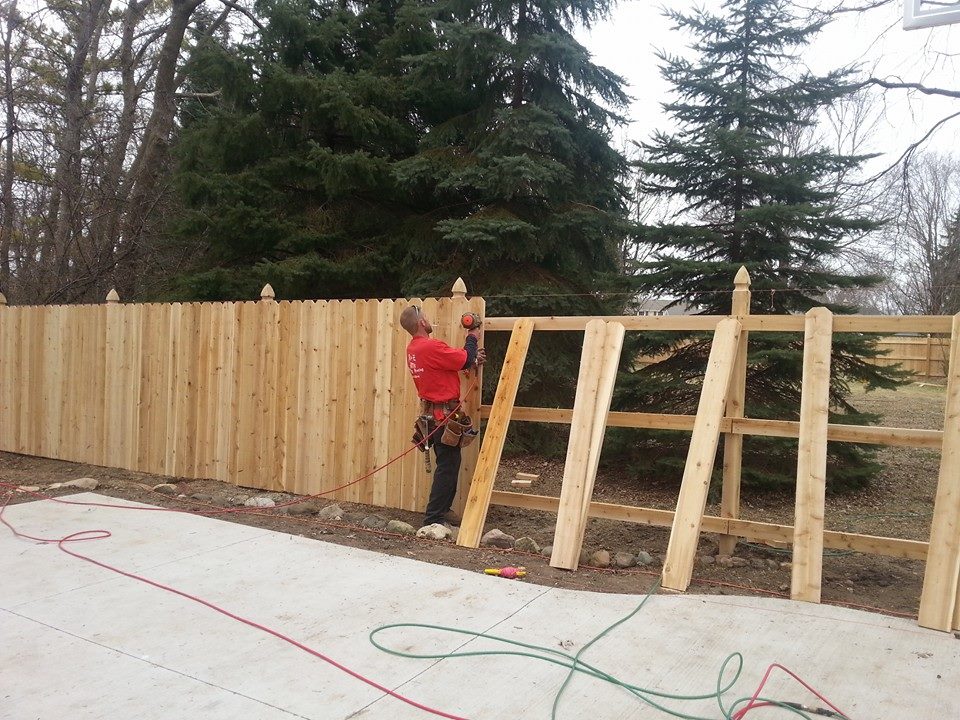
As an apprentice fence installer, you will help examine locations to verify their suitability, advise on acceptable fence materials, and then build and put these barriers in specific areas. You should also check that the sites are clean before leaving.
To be a good Fence Installer, you must understand how different climates and terrains affect fence solutions. Then, propose materials and finishes that suit the aesthetic of work sites.
Responsibilities
Throughout your apprenticeship, you may help:
- remove old fencing
- read fence drawings and plans
- measure and lay out new fence lines
- level the ground where fencing is going to go
- use hand tools or mechanical diggers to dig post holes
- position wooden, concrete or metal posts and fix them to a base
- cut panels to size and fix them to the posts
- apply finishes like paint, staining and weatherproofing
- repair fences and gates.
Salary
- Starting salaries for an apprentice is £18,000 per year.
- Experienced fence installers can earn up to £30,000 per year.
Working hours
You will typically work 42 to 44 hours per week, working away from home as a contractor/ self-employed.
Working environment
You could work on a construction site, in the countryside or at a client’s business.
Your working environment may be outdoors in all weathers.
You may need to wear safety clothing and use safety equipment.
Qualifications
Qualifications you can achieve as an apprentice fence installer include:
- Level 2 Fencing Installer – Entry requirements for this level include some GCSEs, usually including English and maths, or equivalent, for an intermediate apprenticeship. This qualification takes 18 months to complete.
Skills
On a fence installer apprenticeship, you’ll learn:
- knowledge of building and construction
- the ability to work well with others
- to be thorough and pay attention to detail
- the ability to operate and control equipment
- the ability to work well with your hands
- to be flexible and open to change
- the ability to organise your time and workload
- customer service skills
- to be able to carry out basic tasks on a computer or hand-held device.
Career and progression
You could:
- become a lead installer or foreperson
- move into contract management or fencing sales
- set up your own business
